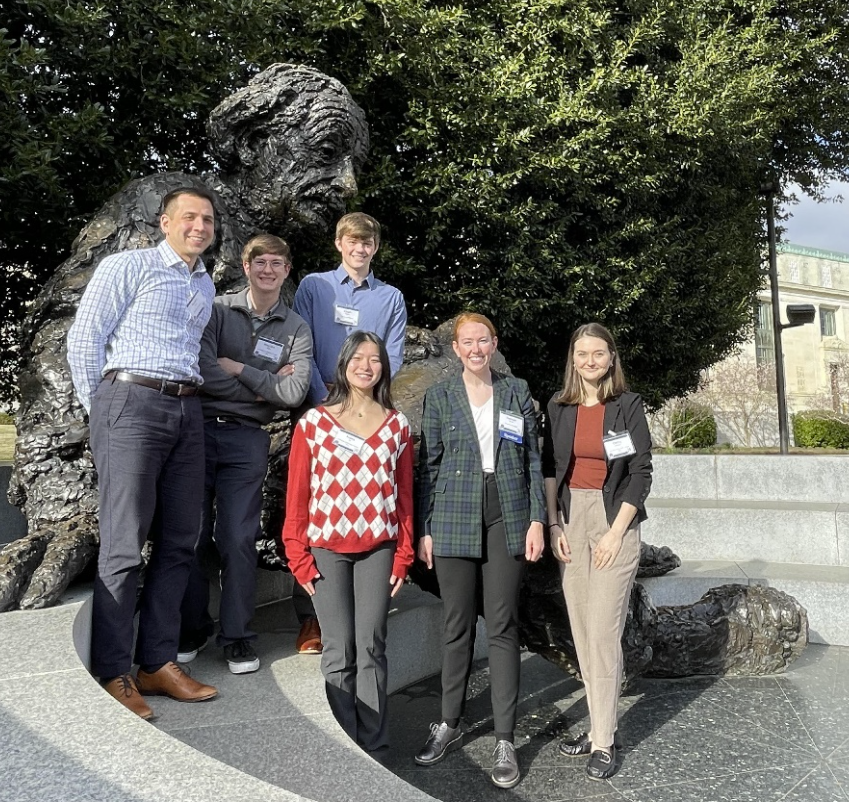CRS Labs Around the World: The Zierden Lab at the University of Maryland
Dr. Hannah Zierden is an Assistant Professor in the Department of Chemical and Biomolecular Engineering as well as the Department of Bioengineering at the University of Maryland, College Park. She earned her PhD in Chemical and Biomolecular Engineering at Johns Hopkins University and researched vaginal drug delivery during pregnancy under Dr. Laura Ensign and Dr. Justin Hanes. She conducted her post-doctoral work in Dr. Tracy Bale’s lab at the University of Maryland Baltimore where she studied the role of extracellular vesicles in pregnancy outcomes. She now leads the Zierden Lab, consisting of a diverse and interdisciplinary group of PhD students, Masters students, undergraduate students, and high school students. She was awarded Maryland Outstanding Young Engineer in May 2024 for her dogma-disrupting work focusing on placental diseases and prevention of preterm birth. She has also served on the Controlled Release Society Annual Meeting Planning Committee for the past three years.
The Zierden Lab uses engineering, chemistry, and microbiology principles to characterize and leverage bacterial extracellular vesicles (bEVs) for several different applications. One of the lab’s primary interests is to improve pregnancy and neonatal outcomes. Microbes and their resulting bEVs have been shown as prognosticators in maternal glucose levels as well as preterm birth. The lab is interested in understanding bEV-driven mechanisms underlying microbe-microbe and microbe-host communication to improve female reproductive outcomes. Through this process, the lab also aims to characterize the vaginal mucus barriers and improve our understanding of how diseases interface with the mucus barrier and vaginal microbiome to improve therapeutic delivery to the female reproductive tract.

bEVs show promise as a therapeutic delivery mode due to their unique structure and biocompatibility; however, there are several obstacles in using bEVs in clinical applications. One of these obstacles is increasing bEV production to match clinical demands. The Zierden Lab works to characterize how culture parameters can affect bEV formation from bacteria on a cellular level and subsequently improve bEV production overall. The lab is also working to improve drug loading into bEVs with different classes of drugs and methods.
Outside of research, the lab is involved in different outreach initiatives such as GLEAM, a program that mentors high school students from underprivileged communities and backgrounds and provides research experience to the students. Additionally, lab members are active participants in conferences and meetings at both the local and international levels.

Recent publications:
Kirian RD et al (2024), Theranostics 14(5):2265-2289. https://www.thno.org/v14p2265
Moore KA et al (2024), Nanoscale 16:8216-8235. https://doi.org/10.1039/D3NR05524H

